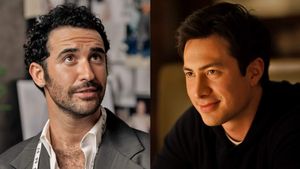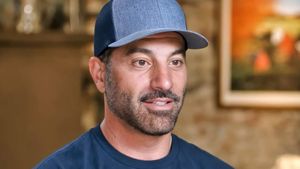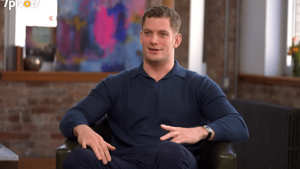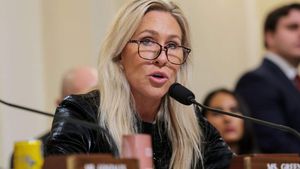This year might bring the first-ever statewide vote in favor of marriage for same-sex couples -- and for that you have your grandmother to thank. Why? Because contrary to conventional wisdom, Americans born in the 1940s have been changing their minds on the marriage issue faster than nearly any other age group. And they are in good company.
Some marriage advocates have posited that the mammoth growth our country has seen in support for allowing gay and lesbian couples to marry has been primarily caused by younger, more accepting voters replacing older ones in the population. But new data released in our new report, The Big Shift, shows that this phenomenon only explains one quarter of the total movement since 2004, while 75% of the shift was caused by Americans of all ages -- including your parents' and grandparents' generation -- changing their minds.
By compiling data from 98 public surveys taken between 2004 and 2011, with a total of more than 128,000 responses, we were able to dig deeper into the question of exactly who has changed their position on marriage, and how quickly. The answers are stunning: support for marriage has risen at a rate of more than 2 points a year since the low point in 2004, gaining 16 points by 2011 -- the most recent year for which we have numbers. Who moved the most quickly? Moderates, whose support went from 33% to 54% over that seven-year timeframe.
And while some groups moved faster than others, every single demographic group we identified moved in a positive direction on marriage, gaining at least 1 point a year in support. The number of Evangelicals, for example, who favor allowing gay couples to marry has risen 8 points since 2004 -- a pace of change that advocates on many other issues would surely envy. And support among weekly churchgoers and conservatives rose even faster, gaining 12 and 15 points respectively between 2004 and 2011.
Looking at the data, it is no wonder that Democratic politicians seem to be uniting in support of marriage, after having run from it just a handful of years ago, while the Republican party struggles with increasing division on the issue. In 2004, only 39% of Democrats supported allowing committed gay and lesbian couples to marry compared to 57% in 2011, while Republicans went from 16% to 26%. And this shift is occurring across the country, with even the South gaining 18 points of marriage support over the seven years we examined.
It is true that younger Americans are more likely to favor marriage. In fact, a person's likelihood of supporting marriage grows 0.8 points by each year of birth, meaning a person born in 1981 is 16 points more likely to favor marriage than someone born in 1961. But youth is overrated. When you break down the proportion of how much of the overall shift came from generational change versus changing hearts and minds, the numbers are stark. A full three-fourths of the movement since 2004 is attributable to the latter, meaning 12 of the 16 points we've gained came from Americans reconsidering the issue and changing their minds.
This truly remarkable rate of reconsideration explains why this year will likely mark a turning point in marriage's record at the ballot box. Marriage opponents often retort that every time Americans have voted on whether to allow gay couples to marry, they have rejected it. But 27 of those 32 votes occurred in 2006 or earlier-- practically the Dark Ages when it comes to this issue. The other five votes happened in places that didn't boast majority support for marriage when they were taken. Today, 13 states plus the District of Columbia have a solid majority in support of allowing gay couples to marry. And two of those states will see votes in November -- Maine and Washington -- making this the first year we've ever had a vote in a state with a solid majority of marriage supporters. Maryland and Minnesota, the other two 2012 ballot initiative states, are on the cusp of a majority for marriage and could also pull out narrow victories. But almost certainly, we will have at least one win under our belt in a matter of weeks.
So when you go out to celebrate this tipping point year of 2012, don't forget your grandparents. Because we wouldn't be crossing this threshold without the significant numbers of Americans of every age, creed, race, region, and ideology who have reconsidered their past positions and realized that allowing committed gay and lesbian couples to marry was something they were willing to support. This big shift is deep and wide, and it is only moving in one direction.
LANAE ERICKSON HATALSKY is the Director of Social Policy & Politics at Third Way, a moderate think tank in Washington, DC. Professor Gregory B. Lewis is Chair of the Department of Public Management and Policy at Georgia State University.




































































Charlie Kirk DID say stoning gay people was the 'perfect law' — and these other heinous quotes